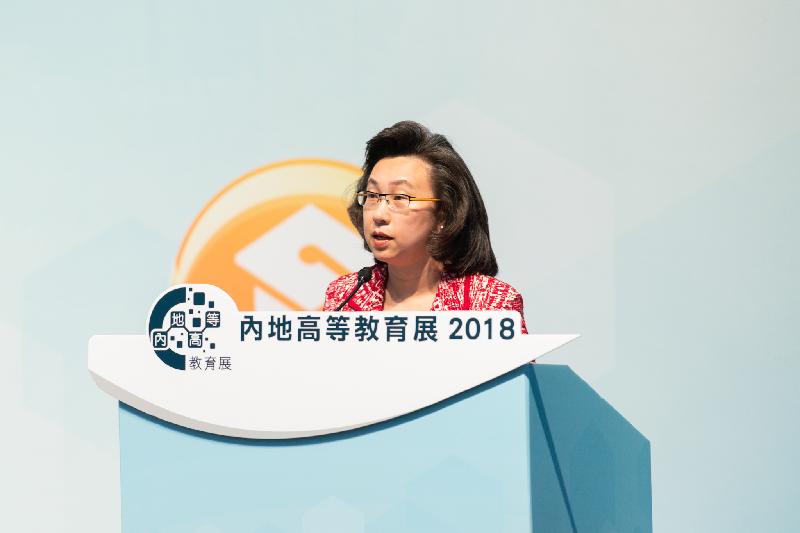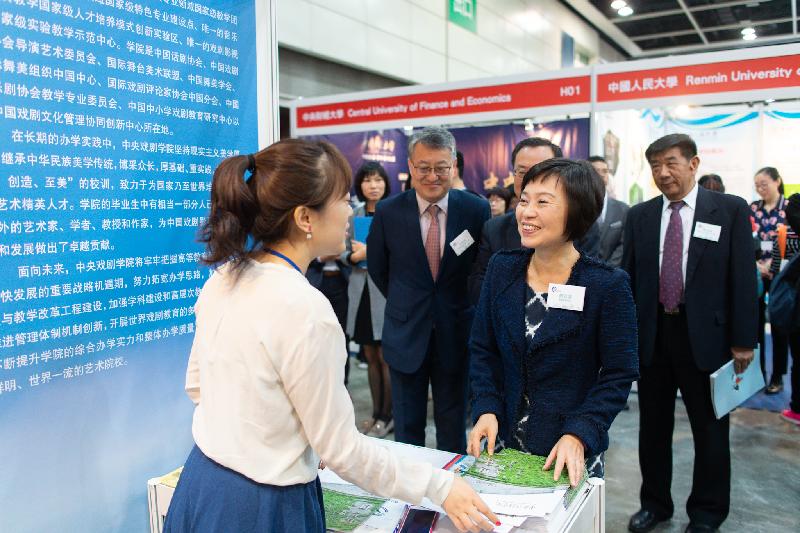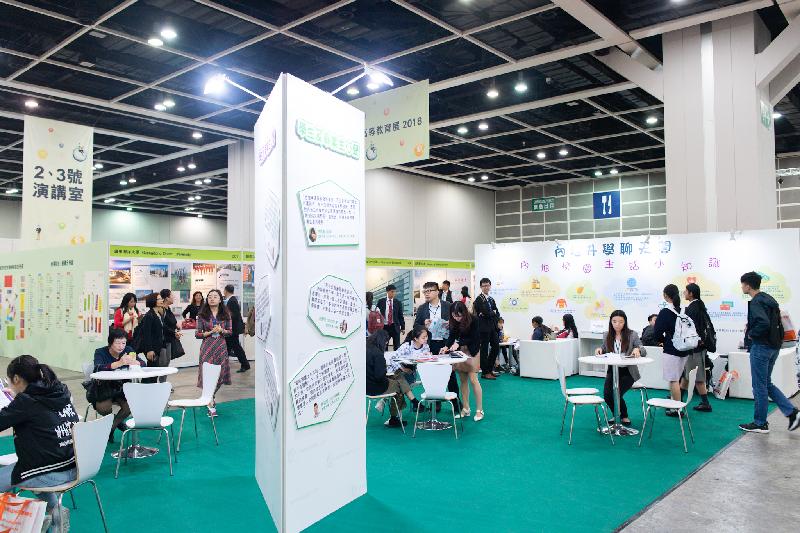The Mainland Higher Education Expo 2018, jointly organised by the Ministry of Education and the Education Bureau (EDB) of the Government of Hong Kong Special Administrative Region (HKSAR), is being held today and tomorrow (December 1 and 2) at the Hong Kong Convention and Exhibition Centre in Wan Chai. The Expo will enable students aspiring to pursue further studies on the Mainland to gain a better understanding of the Scheme for Admission of Hong Kong Students to Mainland Higher Education Institutions (Admission Scheme) in 2019, and also provides information on the participating institutions and their programmes.
Speaking at the Expo's opening ceremony this morning, the Permanent Secretary for Education, Mrs Ingrid Yeung, said that the Admission Scheme has been well received by Hong Kong students, noting that around 3 200 students had applied under the Admission Scheme in the 2018/19 academic year for studying at Mainland universities. The number of participating institutions will increase to 110 under the 2019 Admission Scheme while the provision of specialised programmes not available in universities in Hong Kong by some of the newly joined institutions will allow students to choose from a wide array of institutions and programmes.
She said that Hong Kong students, benefiting from the Mainland policies, could enjoy more convenience in education, setting up business, employment and living on the Mainland. In regard to development opportunities, the development of the Guangdong-Hong Kong-Macao Greater Bay Area will give rise to a platform for Hong Kong students, leveraging the advantages of being innovative, flexible and familiar with the lifestyle on the Mainland, for brighter prospects under the national blueprint for development upon graduation.
The HKSAR Government launched the Mainland University Study Subsidy Scheme in 2014. It includes two types of subsidies, namely "Means-tested subsidy" and "Non-means-tested subsidy", to support Hong Kong students in need who wish to pursue undergraduate studies on the Mainland under the Admission Scheme, and covers all financially needy Hong Kong students pursuing undergraduate studies at designated Mainland institutions, irrespective of the channels of their admission to the institutions.
The Expo is open to the public today from 10am to 7pm and tomorrow (Sunday) from 10am to 6pm at the Hong Kong Convention and Exhibition Centre in Wan Chai. Admission is free.
A total of 108 Mainland higher education institutions participating in the 2019 Admission Scheme will set up exhibition booths and organise talks to provide information on aspects such as faculties and subjects, admission criteria, the number of places and tuition fees. During the event, there will be talks by the Ministry of Education on details of the application procedures and admission arrangements under the Admission Scheme.
There are briefing sessions conducted by representatives from the institutions on the characteristics and career prospects of individual programmes. Some Hong Kong graduates from Mainland institutions will talk about their study life on the Mainland at discussion sessions. In addition, representatives from the education and business sectors will give talks on the career prospects of students after their graduation from Mainland higher education institutions.
The EDB and the Hok Yau Club have jointly compiled the "Handbook on the Scheme for Admission of Hong Kong Students to Mainland Higher Education Institutions". The handbook provides comprehensive information on the scheme and further study on the Mainland, including information on all of the institutions participating in the scheme, the programmes offered, strategies on programme choices, and sharing by graduates of Mainland universities. The handbook will be distributed free of charge at the Expo. The e-version will be posted on the EDB's website after the Expo (www.edb.gov.hk/expo18).


